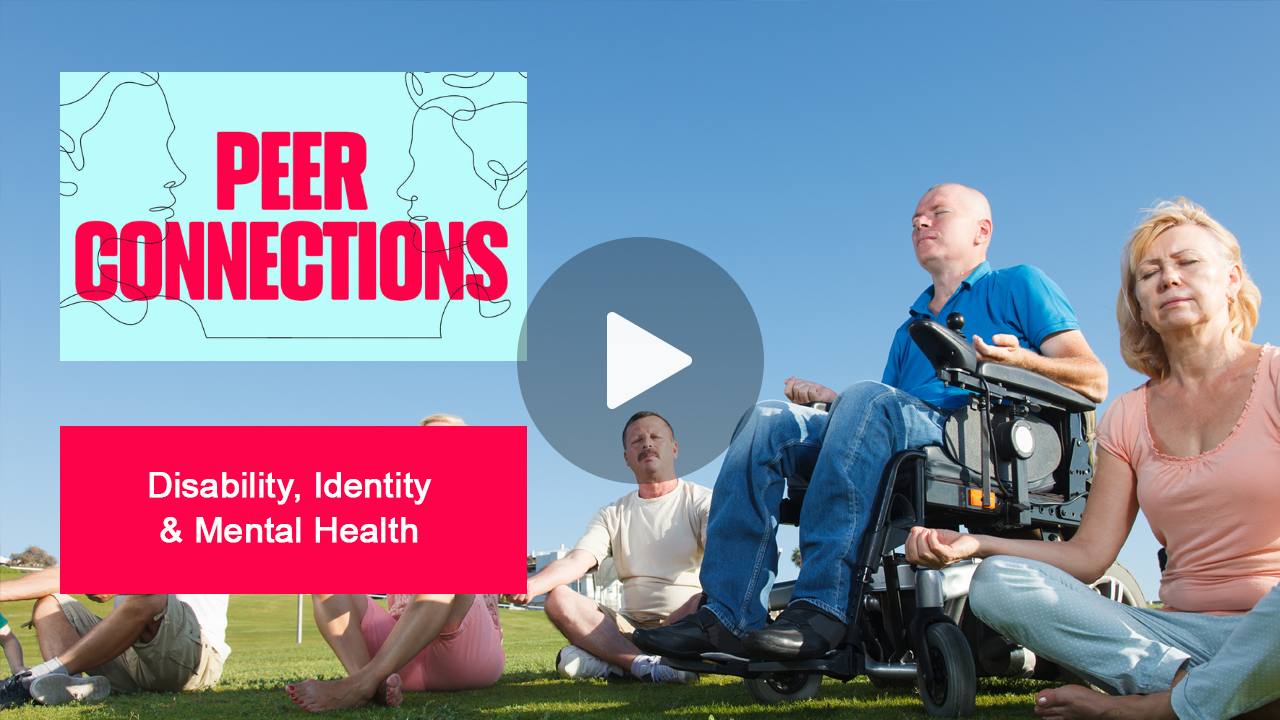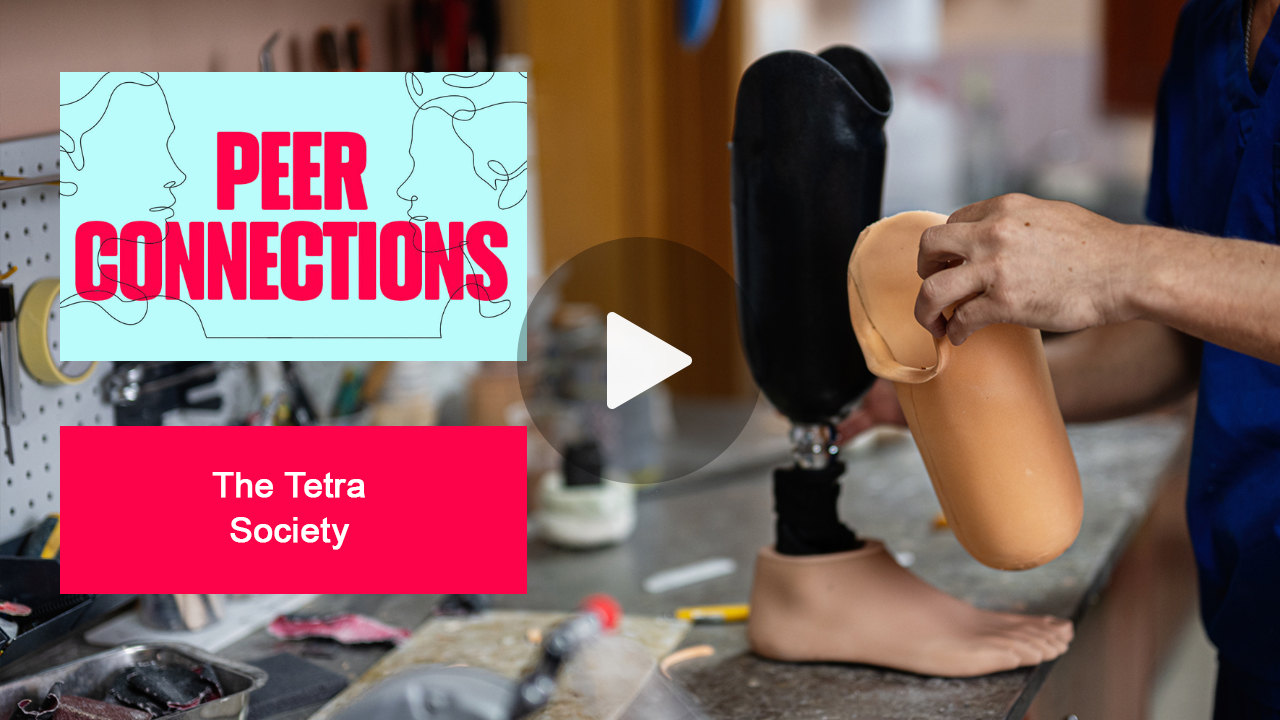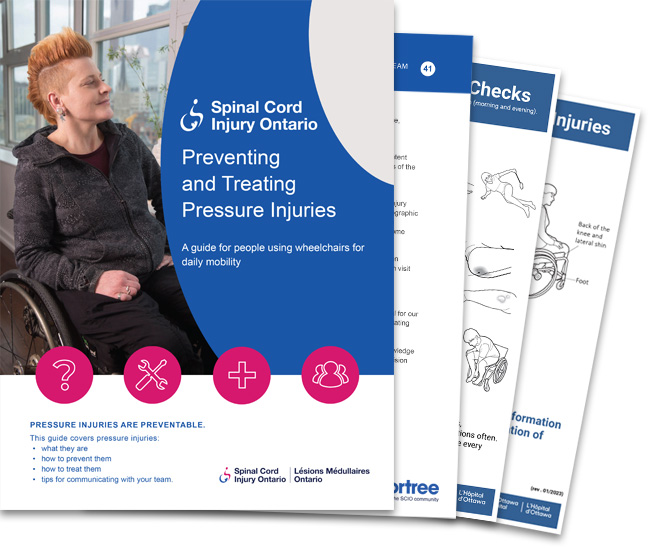A spinal cord injury can significantly impair the ability to cough effectively and to be able to take a deep breath in. Without proper and productive coughing and deep breathing, mucous can accumulate in the lungs, increasing the risk of pneumonia and other complications.
This is a recording of the July, 2024 virtual Peer Connections session called Keeping your Lungs Healthy. Presenters include Renata Vaughan, RRT Senior Registered Respiratory Therapist, Hamilton Health Sciences Regional Rehabilitation Centre, Ron Rattie, SCIO Peer Support Coordinator, and Matt Sagan, SCIO Peer Support Volunteer. Three new video demos in the Respiratory Health series are shown, followed by Q&A with the presenters.
To watch the full series visit http://cortree.sciontario.org/series/respiratory-health/
We hope you enjoy this video series and watching these demonstrations. If you have any questions about what you learn, be sure to reach out to your health care team or service and resource providers like Spinal Cord Injury Ontario.
Peer-to-peer experiences and understanding is a vital part of SCIO’s monthly Peer Connections workshops across the province. We gather informally, often with an expert speaker and share insights and solutions to issues related to living with a spinal cord injury. Everyone is welcome to attend each workshop just register to let us know you will be attending.
So why would you want to Breath Stack? Breath Stacking stretches out the chest wall and lungs and helps keep chest muscles loose. It also helps get air down deep in lower lungs – to help get oxygen to those “hard to reach” lower air sacs. This helps maintain lung capacity over time and helps prevent the lungs from getting smaller faster as one ages. Also, when used in conjunction with the Assisted Cough technique, Breath Stacking helps your lungs build enough volume to provoke a productive cough.
To keep your lungs healthy Breath Stacking with Assisted Cough should be done 2 to 4 times a day – your Respiratory Therapist will set up a care plan that best suits your needs. In times of an infection BSAC may be done as often as every 10 minutes. It’s best to do LVR Breath Stacking before meals. But if you can’t, wait 30 minutes after eating. This will help reduce the risk of nausea and possible vomiting. The Assisted Cough – or “stomach thrust” – which we cover in other demo videos – may be used at any time to help move secretions. Your Respiratory Therapist can advise you if routine stomach thrusts should be used.
If you think the Breath Stacking and Assisted Cough techniques are something you could benefit from, connect with your healthcare team to discuss lung volume testing and how to get the tools and assistance you’ll need to get started.
Remember: These LVR kits are not intended for use as resuscitation bag.
Do NOT do Breath Stacking if you feel light-headed, you have chest discomfort, an upset stomach or you have low blood pressure.
Additional notes for healthcare providers:
- Use of the LVR kit is not recommended in the presence of hemoptysis, recent or current barotrauma, bullous emphysema, severe obstructive pulmonary diseases, hypotension.
- Do NOT use the LVR kit if the individual has an inflated tracheostomy cuff or endotracheal tube.
- For Assisted Cough, Individual assessment and precaution should be taken if any of the following exists: severe reflux, IVC filter, Kyphoscoliosis, or Baclofen Pump.
- An Assisted Cough should not be done for any individuals that are pregnant or that have had recent abdominal surgery or have an abdominal aneurysm.
The LVR bag and attachments shown in the demos are available as a preassembled kit. Here are vendor options in Canada:
- Medigas carries the Mercury Medical Lung Volume Recruitment Kit, product number is TRSM161034502 and price is approximately $60 CAD https://www.medigas.com/en
- ProResp sells the Mercury Medical LVR kit, approximate price of $80 CAD.
- Trudell Medical sells the LVR kit by the box of 6, https://www.trudellmed.com/




